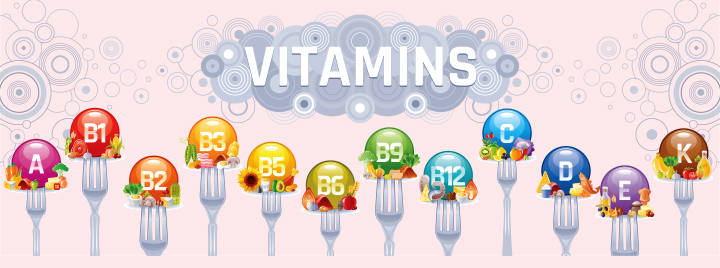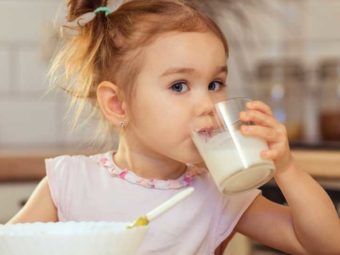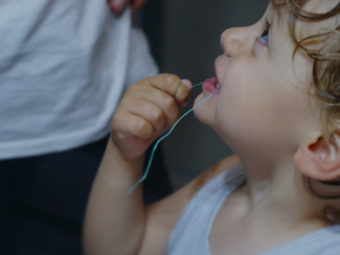
Image: Shutterstock
There’s no denying that breastfeeding is extremely important for babies. Not only does breastmilk supply the infant with the nutrients that they need, they also have important antibodies and are easy to digest. This is why all healthcare professionals advise that moms breastfeed their little one’s until they reach 6 months old at the very least. But what exactly is breast milk made up of and can mothers alter the nutrient levels of their breastmilk by watching what they consume? This is usually a taboo topic as most people feel like the pressure to eat healthy in order to boost nutrients will lead moms to give up on exclusively breastfeeding their babies earlier than they intended. But mothers have a right to be made aware of what nutrients can get passed down to their baby through breastfeeding and how easily they can add to them through diet alone. Let’s take a look at if boosting nutrient levels in breastmilk is possible.
What Are The Nutrients That Get Passed Down From The Mother’s Body To Breastmilk?
One should make note of the fact that there are several nutrients that exist in a mother’s breast milk even if her diet is lacking in nutritional value. This is nature’s way of ensuring that the baby gets the basic nutrients that are vital for growth and development. However, on the other hand, this depletes the mother’s body of such nutrients if they are not being replenished on a regular basis. For example, a mother loses 3 to 5 percent bone mass while breastfeeding, which is likely caused by calcium being drawn for the baby’s needs (1). Similarly, folate keeps getting passed down to the baby from the mother’s reserves irrespective of her diet. Nutrients like zinc, copper and iron belong to this group. This is why some mothers may suffer from zinc or iron deficiency after breastfeeding. In order to avoid the effects of postpartum depletion, the mother must eat a healthy, well-balanced diet at all times.
What Are The Nutrients That Get Passed Down From Mother’s Diet To Breastmilk?
This is where the real mystery lies as this is what determines if a mother’s diet has any effect on the nutrients in her breast milk.
1. Fats
Image: Shutterstock
The most important one of these nutrients is fats. While the total amount of fat in milk doesn’t vary significantly, the kind of fat , that is, good or bad, can vary depending on what is present in the mother’s diet. In fact many studies show that the presence of healthy fats in a mother’s diet can increase the quantity of such fats in the breast-milk within hours of consumption (2).
2.6tamin B Complex
Image: Shutterstock
The other main group of nutrients that can vary depending on the diet and intake of the mother are s thiamin, riboflavin, vitamin B-6, B-12, and choline. These nutrients are vital for the growth of the baby. Studies show that maternal supplementation during lactation rapidly increases the concentrations of thiamin, riboflavin, and vitamin B-6 in milk (3). However, supplementing B-12 For 2 whole months did not increase its concentration in the breast milk for mothers who were deficient in it, and this was proven in the same study. So in order to ensure that your baby is getting enough B-12, the mother needs to build up her reserves during the pregnancy itself.
3. Vitamin A
Image: Shutterstock
6tamin A levels also vary quite a bit in breast milk depending on the mother’s diet. Eating foods rich in beta-carotene and retinol can help in maintaining healthy Vitamin A levels in the milk (4). You could also try incorporating carrots, sweet potatoes, dark leafy greens, eggs, and organ meats into your meals in order to boost Vitamin A in your breastmilk. However, note that vegetarian sources do not always get converted to retinol for many individuals.
4. Vitamin D
Image: Shutterstock
6tamin D plays an integral role as it is essential for the absorption of Calcium and phosphorus which impact the teeth and bone development of your little one (5). Vitamin D levels in breast milk vary directly with mother’s intake. However it is very common for mothers to be deficient in this vitamin, whose primary source is sunlight. And no, sunbathing for a day won’t do you any good. Besides, most mothers don’t get enough sunlight during the postpartum period to produce enough vitamin D which can result in a deficiency for both the mother and the baby. This is why usually a pediatrician will prescribe vitamin D drops for breastfed infants.
As we can see there is a great deal of influence that the diet and intake of nutrients has on the kind of breastmilk a mother produces. In order to produce breast milk packed with nutrients that are good for the baby, a mother has to be mindful of what she eats and the supplements she takes. Stay healthy and happy parenting!

















